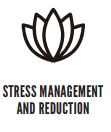The 6 Pillars of Health
It is my belief that human beings are generally designed to be healthy given the right environment, and the right lifestyle choices. In order to maintain health and minimize your chance of disease, or improve recovery from disease, there are 6 main fundamental criteria or pillars that need to be met. Pay attention to these pillars and you are generally rewarded with good health. Ignore them and things start to fall apart. We have deluded ourselves into thinking that we are somehow immune to the forces of nature and of biology. We are not.
The human body can get by for a time while ignoring one or several of these areas, but sooner or later neglecting these important fundamentals can allow our health or the health of our children to break down. Children are generally more resilient than adults, but they are not invincible. These 6 pillars are under constant attack in our modern world, both in kids and adults. Most modern diseases (AKA diseases of Western Civilization) can be traced back to imbalances in one or several of these pillars, all of which are vital to health. It is worth noting that being good in one area does not make up for being neglectful in several others (i.e. lots of exercise cannot make up for a poor diet and lack of sleep…etc).
The 6 Main Pillars of Health are:
Nutrition
This is an area that most people have difficulty with largely because of our easy access to high calorie/nutrient poor food through our industrialized food system. We have been systematically misled about what actually constitutes a healthy diet. For years we were told to avoid fat, leading to a high carbohydrate (high sugar) diet with disastrous consequences. We have been encouraged to eat large amounts of processed grains (which act like simple sugar in the body) and currently more than 70% of processed foods have unnecessary added sugar to improve taste and increase sales. The result is an American diet far too reliant on sugars and processed starches and flours- leading to the obesity and type 2 diabetes epidemics we see today, as well as a host of other maladies including chronic inflammatory diseases, even Alzheimer’s and dementia. The sad fact is that people are getting too many of the wrong kind of calories but are still lacking essential nutrients that allow our brain and body to function optimally.
There are very few absolutes in life, especially when it comes to diets. However, in order to be healthy, there are some basic ground rules that apply over a broad spectrum of dietary preferences.
1. To be healthy you must prepare/cook much of your own food
2. There is no healthy diet without significant amounts of vegetables
3. Highly processed food and sugar are at the root of most modern diseases.
The fundamentals of a good diet are whole, real foods with avoidance of concentrated sugar, highly processed and packaged foods. Our industrial food system is laden with chemicals and food additives, the vast majority of which have never been tested for safety in humans. In fact, there is increasing evidence of potential for harm from many of these chemicals, including pesticides, and endocrine disrupting chemicals like BPA and Phthalates. To avoid much of the garbage in our food supply, shop mostly along the perimeter of the supermarket where you find vegetables, fruit, nuts, meats/poultry/fish: true staples of a healthy diet, and if you are able, grow your own food or buy food from a CSA or farmer’s market and local ranchers.
Sleep
Sleep issues are another common problem that can be devastating to health. Poor sleep can lead to depression and anxiety, cognitive/attention issues, gastrointestinal and immune dysfunction, weight gain, and pre-diabetes. Poor sleep may be due to sleep apnea, trouble falling or staying asleep secondary to stress and anxiety, poor sleep hygiene, or just failing to prioritize a good sleep routine. Many people (especially teens) are underestimating how much sleep their body really needs.(usually minimum 8-9 hours)
Basic sleep hygiene: The optimal sleep environment needs to be cool, quiet and DARK, with no TV, computer or tablet light in the room. Blue light, emitted from TV, smartphone and computer screens and other electronic devices directly interferes with the brain’s ability to get proper sleep by impairing the production of the crucial sleep hormone melatonin. Avoiding screen time and turning down the lights in the home (or using red lights) within a few hours of bed is optimal. If you must use a screen for work or school in the evening, consider downloads to reduce blue light and/or wear blue light blocking glasses in the evening to protect your eyes and brain from this light. DO NOT sleep next to your smartphone, tablet or computer as the light and EMF (electromagnetic fields) they emit can be detrimental to sleep and rest.
Caffeine can impair sleep and it is advisable to avoid it after noon and limit excessive caffeine intake, especially for kids who are increasingly consuming high caffeine coffee and energy drinks. Sleep aids are generally not the answer. It is important to realize that most prescription “sleep aids” do not help with sleep; they render the person unconscious without attaining the important phases of sleep (REM and Delta wave) needed for repair and recovery of the body and brain. (Think Zombie apocalypse). If your child has sleep issues, work on their sleep hygiene and discuss it with their primary provider. There are many apps and downloadable sleep hypnosis/sleep meditation programs that can be very useful for people with sleep disturbances or who have difficulty falling asleep because they have a hard time getting their brain to shut off. (a common affliction and one that I am well familiar with).
For more information on sleep disorders and the associated health risks, check out “Why We Sleep” by Matthew Walker PhD.
Stress Management & Reduction
Everyone has stress in their life, (unfortunately even kids) and some short-term stress can be good if it motivates you to achieve your goals. However, excessive and chronic long-term stress and anxiety can destroy health and quality of life. Anxiety disorders are an epidemic in our society both in children and adults. Excessive stress has been shown to shrink the areas of the brain that are involved with learning and memory while simultaneously making the stress centers of the brain grow stronger. Long term stress interferes with sleep, digestion, immune function, and increases risk of developing clinical depression and anxiety disorders, cancer and heart disease.
Stress management is not about eliminating stress (which is impossible). The key is to increase resilience, and change the way that you let life events affect you. This is something we should be teaching all our kids. There is a reason why practices like meditation and mindfulness have been around for thousands of years- they work to improve resilience and decrease the negative effects of stress in a profound way. Stress can be decreased through positive means with sports and exercise, martial arts, a creative outlet like music, or those who have a regular practice of meditation. Far from being “woo-woo”, there is hard science to back up the health and brain benefits of mindfulness and meditation, even in kids. Check on one of the many beginner meditation apps like “Headspace” that have sections for kids. If meditation is so “woo- woo”, why does Harvard have dedicated research into mindfullness, why does Google offer meditation coursework for all its employees, and why are NFL teams teaching mindfulness to their players to improve their performance? Because it works, that’s why.
Exercise and Movement
The human body was meant to be fit and active. Burning calories during exercise is not the main point, but improving your body’s overall metabolism is. Exercise helps your body learn to burn fat more efficiently, even at rest and increases the little powerhouses of our cells called mitochondria. This will help prevent heart disease, obesity and diabetes. Exercise is just as important for the brain as it is for the body! Intense exercise boosts blood flow to the brain and levels of a substance called BDNF (brain derived neurotrophic factor) which is basically “miracle grow” for your brain. BDNF is an important factor in helping to maximize academic performance and in preventing age related cognitive decline. There are studies showing exercise can improve symptoms of ADHD and improve attention and learning. Exercise is the best natural antidepressant there is, and coupled with a healthy diet and good sleep, would decrease the need for a large proportion of psychiatric medications. The elimination of physical education in schools is criminal. Fixing kids’ brains and bodies cannot be done without regular physical activity.
Connectedness and Community
Humans are meant to be social animals, not isolated and alone. Truly “no man is an island” and we need each other for new ideas, for help, for emotional support, and for a sense of belonging. Social isolation breeds ill health, both mentally and physically. People with a strong social network and community live longer, and healthier, and suffer from fewer stress-related issues. Finding a way to be of service to others and finding a purpose larger and outside ourselves is an important part of being happy and fulfilled. Find a way to get connected and involved- This can be through your church or temple, your school, sports teams, a community center, volunteer or charity organization, or even through a large extended family.
A word about sunlight and sun exposure
Recent research is showing how important sunlight exposure and time spent in nature is for human health. Not only do we need sunlight for vitamin D production, but it also helps set our sleep/wake cycle and helps us feel more awake during the day and sleep better at night. Fear of skin cancer has led to the bad advice to avoid all sun exposure, which is unnecessary and unhealthy. Avoiding SUNBURN is important- avoiding SUNSHINE may actually increase risk of certain cancers and heart disease risk as well as type 2 diabetes, depression and autoimmune disease. Morning sun exposure is the best, but moderate exposure to even midday sun can have benefits as long as it is not excessive. Respect the sun but do not fear it, it is your friend. There are a number of studies showing significant health benefits of spending time outdoors in nature, with reductions in risks for cardiovascular disease, depression and cancer.
Pay attention to the areas in life that could use a “tune up” before health erodes into illness and disease. Periodically do a 6 Pillars Scan of your child’s routine to identify areas that could use a little attention. Check in with them on the following every few months:
1. How is their sleep? How long are they sleeping? Is it good quality sleep? What is their sleep routine?
2. What are they eating? Are they eating several servings of vegetables daily? How much sugar is in their diet?
3. Are they really stressed out? Is life getting overwhelming? What are they doing to manage stress?
4. How active are they? What are they doing to keep themselves fit and active?
5. Do they have a “tribe” or a group in which they feel they fit in?
6. Have they been outside in the sun recently and have they spent time in the park or in the woods or at the beach?
A body out of balance will often send little “wake-up calls” like fatigue, depression, digestive issues, frequent infections, or just not feeling good- prior to onset of full-blown disease. Periodically making improvements in any weak areas of the 6 pillars can have huge payoffs in energy, mood, mental performance and overall health. That is the ultimate goal, to be healthy physically, mentally, and emotionally and reaching our full potential and able to share our gifts with the world, whatever they may be. Support those 6 Pillars and reap the benefits.








